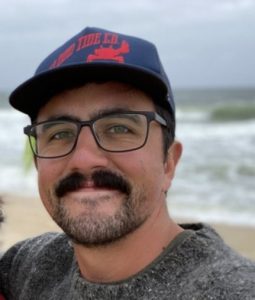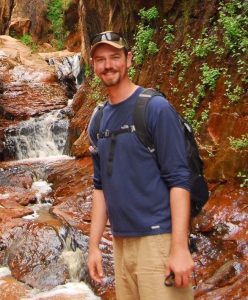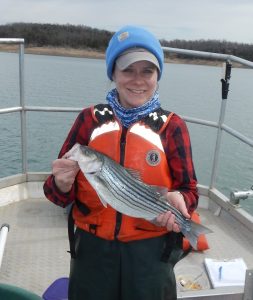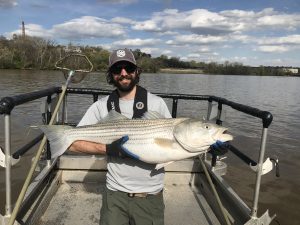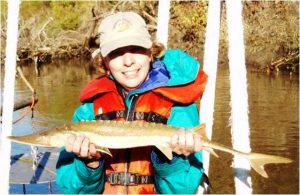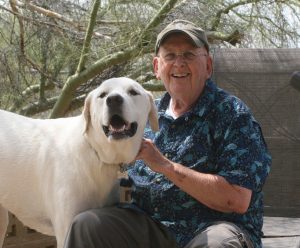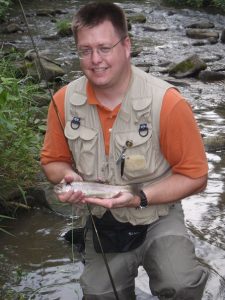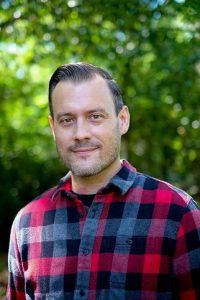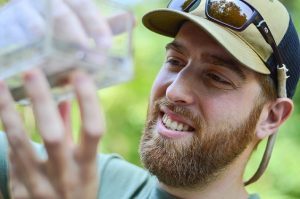Climate Communications Training Track
Want to learn the skills needed for meaningful dialogues on the impacts that our changing climate is having on our fisheries science and aquatic resources? AFS is offering a new Climate Communications Training Track that explores narrative, connection, and presentation skills via in-person workshops at Spokane, online workshops before the Annual Meeting, and symposium offerings.
CE Courses
As of August 9, 2022
The courses below are currently scheduled as live, in-person courses in Spokane, Washington, except where noted. AFS will notify registrants of any course schedule changes due to travel restrictions. Check back often – courses will be added to the schedule as additional speakers confirm their participation.
Saturday, August 20
8:00 am – 5:00 pm
Bayesian I: Introductory Bayesian Inference with JAGS for Fish Biologists
Interest in applying Bayesian inference to fisheries analyses has grown over the last several decades, however, computational implementation remains a barrier for many practitioners given these methods are generally not part of traditional university curricula. This workshop is intended for fisheries professionals with an interest in learning about Bayesian methods and how to use JAGS to implement them on their own data sets. JAGS is a widely used and free program that allows specification of conditional probability models and interfaces cleanly with the R programming environment (basic R experience recommended). Foundational topics on Bayesian implementation will include distinctions and advantages/disadvantages of Bayesian versus classical inference, Bayes’ Theorem, prior/posterior distributions and their roles, basics of MCMC methods and the diagnosis of MCMC convergence issues. These topics will be covered via lecture material throughout much of the morning and explored in the afternoon with some limited JAGS examples including simple mean/variance estimation, comparison of posteriors, linear, and (time-allowing) non-linear regression.
Instructors:
Henry Hershey
Auburn University
Benjamin Staton
Columbia River Inter-Tribal Fish Commission
Introductory ArcGIS/QGIS for Fisheries Biologists
This course will serve as an introduction to using spatial data in a geographic information system platform. Participants will learn fundamental concepts of using geographic information and gain experience applying those concepts in hands-on exercises to accomplish real world tasks that might be conducted by a fisheries biologist.
Participants will learn how to create maps using best practices; locate and read metadata; use existing datasets; create new datasets by digitizing or incorporating field-collected spatial information; join tabular data to spatial data; use geoprocessing methods to summarize metrics; and carry out other GIS operations useful for fisheries biologists.
Instructors:
Hadley Boehm
University of Missouri
Jodi Whittier
University of Missouri
Sunday, August 21
8:00 am – 5:00 pm
Advanced ArcGIS/QGIS for Fisheries Biologists
This course will introduce participants to advanced concepts and tools for manipulating and summarizing spatial datasets using the ArcGIS and QGIS platforms. The concepts and basis of the tools will be applicable to other GIS platforms such as program R. Topics covered include: geoprocessing, interpolation, simple geostatistics, building spatial networks, and conducting aerial image classifications. The course will be a combination of lectures and hands-on exercises using examples that might be encountered by a fisheries biologist.
Instructors:
Hadley Boehm
University of Missouri
Jodi Whittier
University of Missouri
Bayesian II: Intermediate Bayesian Inference with JAGS for Fish Biologists
Bayesian II is a continuation of topics covered in Bayesian I to cover more advanced topics in JAGS modeling. Although it is possible to register for only Bayesian II, it is recommended that participants have some previous experience with Bayesian inference and JAGS should they choose this route. Analyses will include assorted GLMs (logistic, Poisson, negative binomial, and zero-inflated Poisson regression), goodness-of-fit checks, Cormack-Jolly-Seber models, and (time allowing) state-space population dynamics models (e.g., spawner-recruit analysis). Each model and example data set will be covered via lecture material prior to coding the model in JAGS to ensure all participants are familiar with each new model and topic.
Instructors:
Henry Hershey
Auburn University
Benjamin Staton
Columbia River Inter-Tribal Fish Commission
SOLD OUT - Electrofishing Measurements and Methods (EMM)
EMM emphasizes practical aspects of electrofishing while covering enough theory to give participants (i.e., registrants) a confident grasp of electrofishing principles. EMM is a 1-day course that consists of theory and method presentations during three 70-minute sessions in the morning. The afternoon is devoted to three 70-minute sessions of lab-style training by hands on use of electrical instruments (e.g., portable oscilloscope). The course concludes with participants developing a chart for standardized electrofishing and evaluating their skill and knowledge by testing. At conclusion of the course, each participant receives descriptive certification of formal training (but not user certification; that is an employer responsibility).
Instructor:
James “Jim” Reynolds
University of Alaska Fairbanks, Emeritus
Database Concepts, Design, and Application in Wildlife and Fisheries Science
This full day course is applicable to anyone who collects and works with data; the focus will be fish and wildlife examples. Some of the topics that will be covered include: data management life cycle, data management planning, data security and sharing, data validation and verification, quality assurance and quality control, types of data tools, choosing the right tool for the job, and basic relational database structure and design. Instruction will include lectures and demonstrations. The last two topics will give students the opportunity to walk through construction of their own database using a fisheries example. Computers will not be provided, but participants are welcome to bring their own laptop and dataset.
Instructor:
Keith Hurley
Nebraska Game & Fish Commission
VIRTUAL COURSE:
Introduction to Instream and Insalmo, Salmonid Models for Instream Flow and Temperature Assessment and Habitat Restoration Design
**Registration for this virtual course is open to Spokane meeting attendees and non-attendees!
Meeting attendees: Add this course to the meeting registration through the meeting site.
Non-attendees: Register through the AFS website.
This workshop will train participants in the use of InSTREAM and InSALMO, innovative instream flow and temperature assessment models for trout and freshwater life stages of salmon. These are individual-based simulation models that represent a virtual stream and how individual fish select habitat, grow, survive or die, and reproduce. They predict how population characteristics such as abundance, biomass, and persistence differ among alternative flow and temperature regimes. These models have been in development and use for over 20 years and have been applied at >50 sites.
Instructor:
Steven Railsback
Lang Railsback & Associates
Bret Harvey
USDA Forest Service, Redwood Sciences Laboratory
8:00 am – 12:00 pm
Cultural Competency and Relevancy in Natural Resource Sciences
In the sciences so much is lost in communication, when communicating is the heart of the work scientists do as managers and researchers in natural resources. The nuance in language is not lost in nomenclature, taxonomy, and so on; however, in everyday speaking with people from different ideas, backgrounds, and ways of knowing there is a lack of understanding. In this workshop we will enhance awareness of biases, communication skills, and the disparities between cultural knowledges. This workshop is not a be-all and end-all rather a starting point for ongoing self-work and labor to sustainably lift one’s own awareness evolving towards social and environmental justice.
Sammy Matsaw
Shoshone-Bannock Tribes Fish and Wildlife Department
Using ggplot in R for Data Visualization
This course will provide opportunities to construct publication-quality graphics using ggplot in R and RStudio. It is intended for students and professionals who are interested in visualizing data and implementing analyses in a freely available, flexible coding platform. We will describe associated code in detail; however, having a working knowledge of R and basic fisheries concepts would be beneficial (but not required). We intend to provide a brief overview of making graphs using ggplot2 as well as practice examples. Each participant should bring a laptop with R, RStudio installed as well as the ggplot2 and tidyverse packages already installed.
Travis Brenden
Michigan State University
Brian Irwin
Georgia Cooperative Fish & Wildlife Research Unit
Maxwell Kleinhans
University of Georgia
Steve Midway
Louisiana State University
Course Pricing
Member Type | Full Day | Half Day |
|---|---|---|
Student Member | $125 | $65 |
Student Nonmember | $150 | $75 |
Early Career Professional Member | $150 | $75 |
Regular Member | $175 | $90 |
Nonmember | $250 | $150 |
Course Instructors
